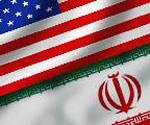 Reuters: The United States set a March deadline on Thursday for Iran to start cooperating in substance with a U.N. nuclear agency investigation, warning Tehran the issue may otherwise be referred to the U.N. Security Council. By Fredrik Dahl
Reuters: The United States set a March deadline on Thursday for Iran to start cooperating in substance with a U.N. nuclear agency investigation, warning Tehran the issue may otherwise be referred to the U.N. Security Council. By Fredrik Dahl
 VIENNA (Reuters) – The United States set a March deadline on Thursday for Iran to start cooperating in substance with a U.N. nuclear agency investigation, warning Tehran the issue may otherwise be referred to the U.N. Security Council.
VIENNA (Reuters) – The United States set a March deadline on Thursday for Iran to start cooperating in substance with a U.N. nuclear agency investigation, warning Tehran the issue may otherwise be referred to the U.N. Security Council.
The comments by U.S. diplomat Robert Wood to the board of the International Atomic Energy Agency signaled Washington’s growing frustration at a lack of progress in the IAEA’s inquiry into possible military dimensions to Tehran’s nuclear program.
Iran – which was first reported to the U.N. Security Council over its nuclear program by the IAEA’s 35-nation board in 2006 and then was hit by U.N. sanctions – rejects suspicions it is on a covert quest for atomic bomb capability.
But its refusal to curb nuclear work with both civilian and military applications, and its lack of openness with the IAEA, have drawn tough Western punitive measures and a threat of pre-emptive military strikes by Israel.
A year ago, the IAEA published a report with a trove of intelligence indicating past, and some possibly continuing, research in Iran that could be relevant for nuclear weapons.
The IAEA has since tried to gain access to Iranian sites, officials and documents it says it needs for the inquiry, but so far without any concrete results in a series of meetings with Iran since January. The two sides will meet again in December.
In his statement, Wood requested IAEA Director-General Yukiya Amano to say in his next quarterly report on Iran, likely due in late February, whether Tehran has taken “any substantive steps” to address the agency’s concerns.
“If by March Iran has not begun substantive cooperation with the IAEA, the United States will work with other board members to pursue appropriate board action, and would urge the board to consider reporting this lack of progress to the U.N. Security Council,” Wood said, according to a copy of his statement.
“Iran cannot be allowed to indefinitely ignore its obligations … Iran must act now, in substance,” Wood said.
Amano earlier told the board that there had been no progress in his agency’s year-long push to clarify concerns about suspected atom bomb research in Iran, but said he would continue his efforts.
EU SEES IRANIAN “PROCRASTINATION”
A simple majority in the IAEA board would be required to refer an issue to the U.N. Security Council, which has imposed four sanctions resolutions on Iran since 2006.
It is unclear whether Russia and China – which have criticized unilateral Western sanctions on Iran – would back any U.S. initiative to report Iran again to the Security Council.
Wood later told reporters he hoped the December talks between the IAEA and Iran would be fruitful. But, he added, “I have my doubts about the sincerity of Iran.”
The 27-nation European Union told the board that Iran’s “procrastination” was unacceptable. “Iran must act now, in a substantive way, to address the serious and continuing international concerns on its nuclear program,” it said.
Iran’s ambassador to the IAEA, Ali Asghar Soltanieh, criticised what he called “political noise” and “pressure” from the United States and the EU.
Diplomacy between Iran and the powers – the United States, China, Russia, France, Germany, and Britain – has been deadlocked since a June meeting that ended without success.
Both sides now say they want to resume talks soon, after the re-election of U.S. President Barack Obama, and diplomats expect a new meeting in Istanbul in December or January.
Iran is ready for a “face-saving” negotiated solution to the nuclear dispute, but the West must accept the reality that Tehran would never suspend uranium enrichment, Soltanieh said.
Refined uranium can be used to fuel nuclear energy plants, Iran’s stated aim, and also provide bomb material if processed further, which the West suspects is Iran’s ultimate aim.
The West wants Iran to suspend enrichment, but Iran is showing no sign of backing down.
Iran “has provocatively snubbed the international community by expanding its enrichment capacity in defiance of multiple United Nations Security Council resolutions,” Wood said.
(Editing by Mark Heinrich)


